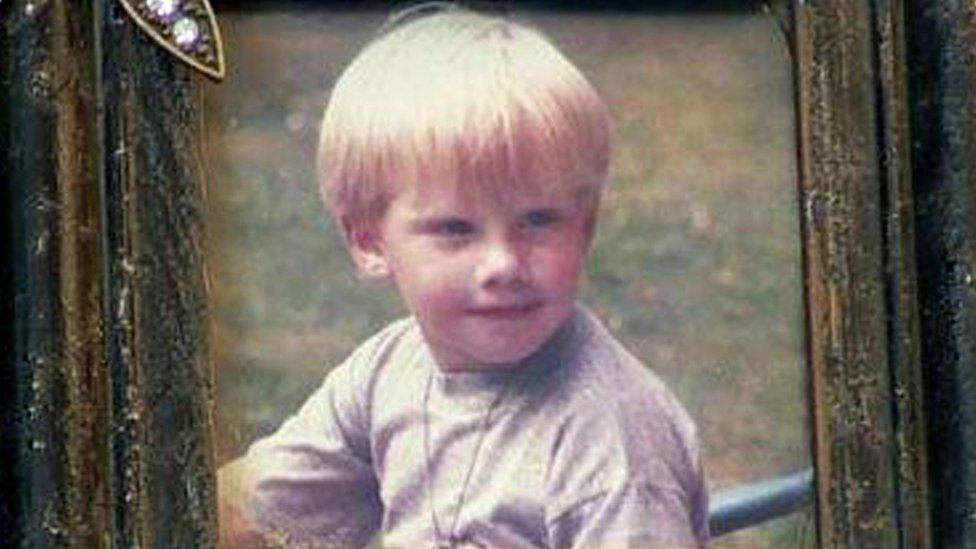Contaminated blood inquiry: Dad wants family's pain recognised
- Published
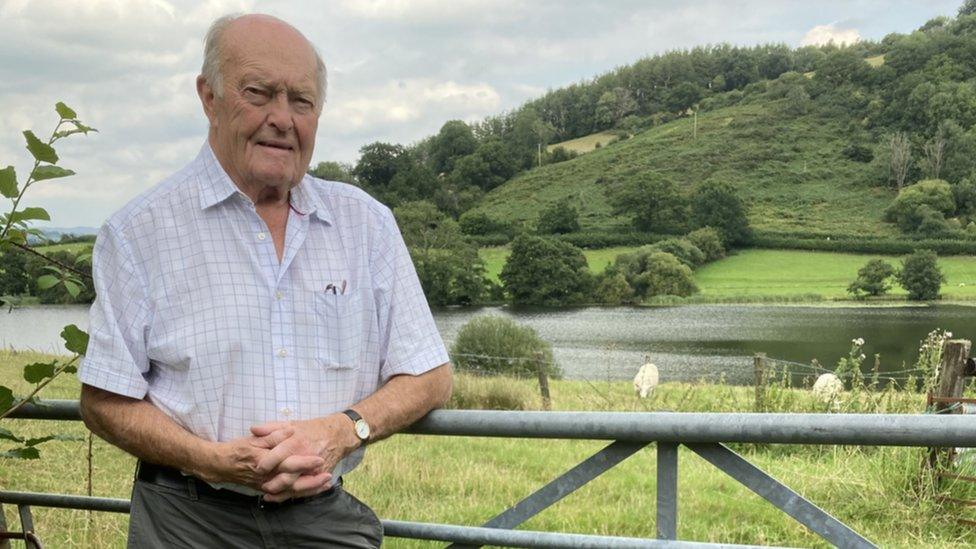
Tony Summers: "When you've sat alongside your son's bed and watched him die, there is no compensation that can change anything"
The father of a man who died at the age of 44 after being given contaminated blood in his teens wants the government to recognise affected families' pain.
Tony Summers' son Paul died in 2008 having contracted HIV and hepatitis C.
Mr Summers said compensation was not as important as recognition after a judge said parents and children of victims of the contaminated blood scandal should receive government compensation.
The UK government must now respond to the recommendations.
Mr Summers said nothing could take away the suffering they had endured.
"When you've sat alongside your son's bed and watched him die, there is no compensation that can change anything," he said.
"My concern over the last 30-odd years has been what we can do to make certain that the bereaved, the infected and the affected, get good compensation and support for the future".
More than 3,000 people died after contracting HIV or hepatitis C via NHS treatments in the 1970s and '80s.
Now the chairman of the infected blood public inquiry, Sir Brian Langstaff, said it was time to "recognise deaths which have so far gone unrecognised".

Paul graduated from university in Plymouth, where doctors told him he was HIV positive
Mr Summers and his wife Pat, from Llantwit Major, in the Vale of Glamorgan, both gave evidence to the inquiry in Cardiff in 2019.
They said their son's HIV diagnosis was kept from him when first detected. He only found out when he went to university in Plymouth and got a new GP.
"It would be good of the government to acknowledge what we and every other family have been put through all these years," Mr Summers said.
"It was denied initially by his hospital that it could possibly happen.
"Initially we were told there wasn't a problem. HIV was not a problem. Only to discover that it was a major problem".
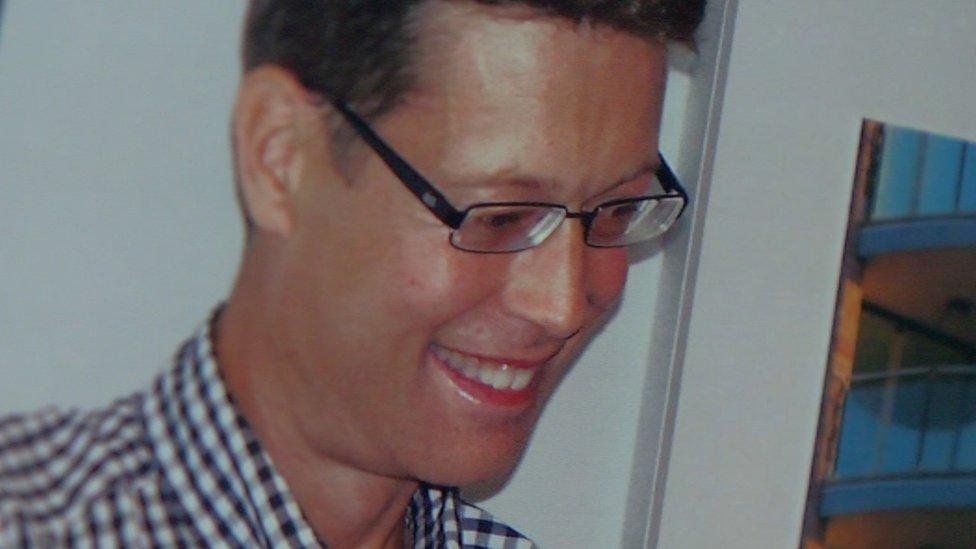
Paul Summers was given infected blood in his teens
Mr Summers said he was hopeful the inquiry would deliver the closure many victims and their families still wanted, as well as a commitment to learn lessons.
"The aim is to make sure that this can't possibly happen again," he said.
"Yes, money is important. But it's not important in every situation.
"We can never get total closure, but at least when this finishes, I hope that I can walk away and think, 'the last 30 years were not wasted'."
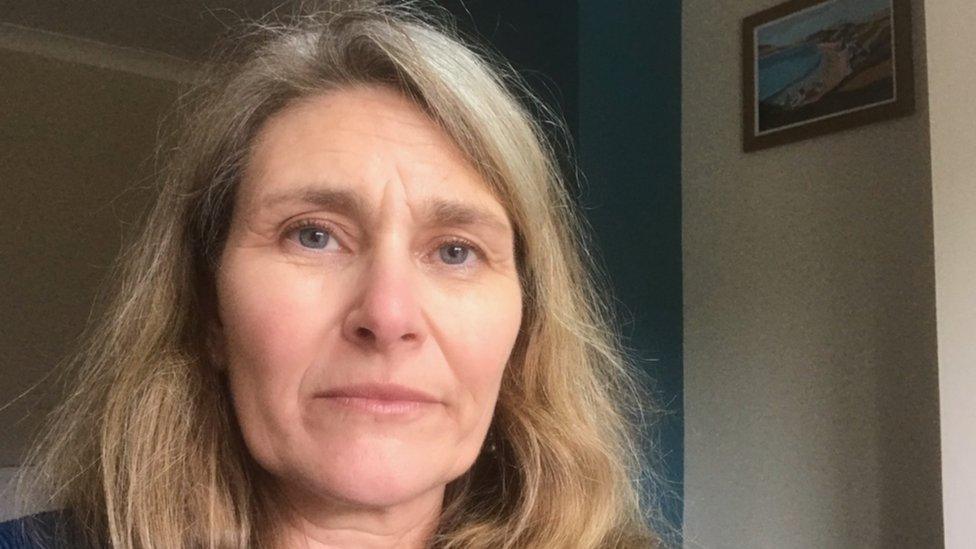
Rachel McGuinness says it is good to be recognised as the daughter of a blood scandal victim
Rachel McGuinness, from Bangor, in Gwynedd, lost her father, Christopher Thomas, after he was given infected blood.
The recommendation that parents and children get compensation is an important step in achieving justice for families, she said.
"It's good to be recognised as a child who lost a father, even though it was a very long time ago," Ms McGuinness said.
She said she would be waiting anxiously to see how the UK government responds.
"The process as a whole has been helpful for my family," she said.
"It's given us a chance to discuss things and ask questions that we didn't have answers to.
"It helps recognise the fact that my father had said, from the beginning, that there were issues and that mistakes had been made. I'm very pleased about that."
- Published1 December 2021
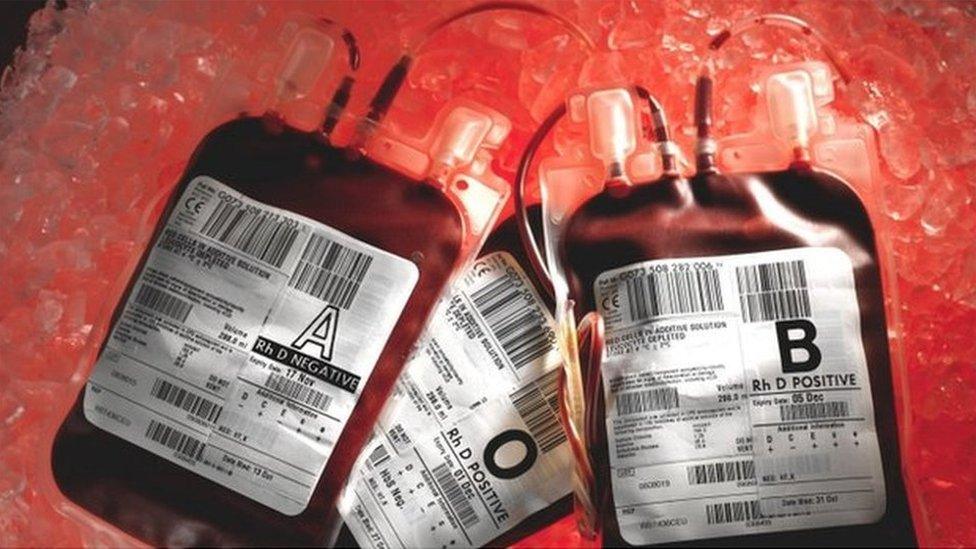
- Published24 July 2019
